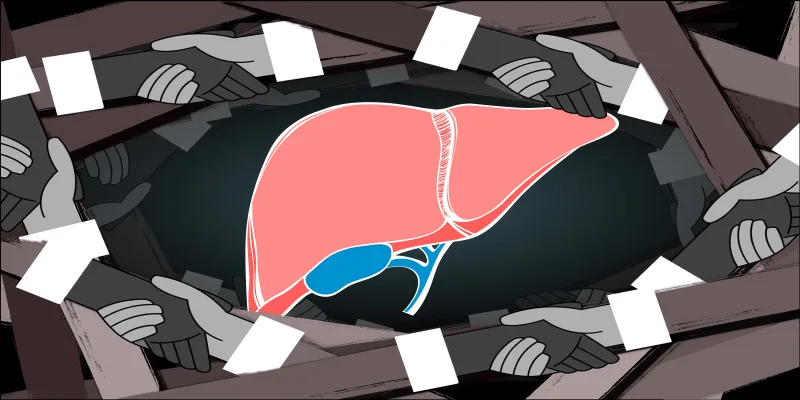Recently, I completed contract negotiations and renewed my contract with my employer. Though this is a process that can be daunting, the negotiation ended up being successful — as I had made sure to define and establish my value as a physician before the negotiation began.
As doctors, we all have an intangible sense of our value. But our employers or practice owners don’t care about intangibles — they want hard data. Unfortunately, just like in personal finance, we doctors have little to know formal education or training in contract negotiating, putting us at a disadvantage.
Nevertheless, there are ways to uncover what tangible value you as a doctor bring to your employer. Below, I share what I used in my own contract negotiations.
1. Normative Physician Salary Datasets
Today, multiple companies exist that have access to accurate normative physician salary data based on large populations of doctors. For a nominal fee, you can get access to the (relevant portions of!) this data too.
When my contract re-negotiation was coming up, I used Compensation Rx from Contract Diagnostics. For a flat fee of about $300, a price I would have found reasonable even as a graduating trainee, I received a full report of compensation data for early career plastic surgeons in my geographical region of Western New York.
The data did not only include things like average salary, which is useful but limited. It also included a breakdown of how compensation was determined — RVUs versus collections, etc — as well as breakdowns by practice setting. The dataset also includes additional RVU data like compensation/RVU.
Also included in the flat fee is a strategy meeting with a contract advisor to really break down the data and answer any questions.
Needless to say, normative physician compensation data is invaluable. It really legitimized the salary that I was asking for in my negotiations.
2. Tracking of RVUs
Like many of you, my contract is salary-based. I make 96% of my income via salary and the extra 4% via a bonus for things like dictating my operative reports in time.
I think most doctors in this situation just ignore RVUs, as their income is not based on an RVU compensation model. This is short-sighted — in reality, doctors’ compensation is based on their production, and the most common and universal measurement of production in medicine in the RVU.
Take my case again. My initial contract was for three years. I knew from day one that I would be re-negotiating my contract in three years time. And I knew that, when the day came, I would need to show that at the very least, I earned my contract. And at the very most, that I outperformed my contract and deserved a raise.
So, I tracked my RVUs from day one. For a surgeon, RVUs come largely from our operative cases. So, I tracked every case that I did as well as the coding.
Then, when it came time for contract negotiations, I simply tabulated all of the different CPT codes from my cases, used available software like EncoderPro to gather the RVUs associated with each CPT code, and then multiplied the total RVUs that I generated by the dollar/RVU value available via the normative data I obtained.
By tracking all this information, I was able to tell my employer exactly how much value I brought in a very concrete and tangible way. (And I even showed how I was still giving them a deal even at my new asking price based on the value I brought to them!)
You too can show your employer your value in this way. The steps are simple: Figure out where your RVUs come from. And track them obsessively, every day.
Remember, no one will care about your value as much as you will. And if your employer tracks your RVUs, you can guarantee there will be inaccuracies. So, do it yourself to make sure it’s done right.
3. Comparison to Colleagues
In the study of happiness, in personal finance, and even in the concept of intentional spending, comparison is regarded as the thief of joy. However, in the case of preparing and establishing your value, comparison can be a huge help.
In fact, just yesterday, I received an email from a doctor who was asked to help spread the word that her employer (a big hospital system) was looking to hire more doctors in her specialty. They sent her a posting for the job, and the compensation listed was higher than her own — even though she had been there for 10 years! Needless to say, she will be using this information in her upcoming contract negotiations.
While this is an extreme example, the concept of formally and informally comparing your compensation is an important one.
Get as specific as you can. Normative salary data is very helpful because it is granular. It can tell you what an average doctor in your specialty in your region in your age range makes annually. But comparing compensation with colleagues is even more granular. They are real doctors, in your area or even in your hospital system.
Now, I am sure many of you are wondering whether comparing your salary to those of people you may know personally can be done at all. After all, it sounds awkward and goes against the grain of how doctors usually handle their compensation.
However, this usual tight-lipped attitude among doctors is doing us no favors. Remember: A rising tide lifts all boats. And sharing salary data among our tribe will only help us in the future when we negotiate. Notably, such sharing happens in other fields, like professional sports, all the time.
So, meet with your partners and make an agreement to share data in an effort to help you all. Talk to other mentors or friends nearby — in a similar practice type as yours or not.
Alternatively, if you are in a state position like I am, you can just look online to find out this salary information. Or you can look at job postings for similar positions to see what is being advertised — especially as laws are passed that make it mandatory to include compensation data in these postings.
4. List of Intangibles
After you’ve done all of the above, you can turn your focus to the intangibles. (Remember, the problem is that most doctors focus only on intangibles, so make sure to lead with the numbers in your negotiations and top it off with the intangibles to drive your point home.)
To get started thinking about your intangibles, draw up a list of all the intangible things you do to contribute and bring value. These should be things that you do that others can’t — as the fewer people there are that can do a thing, the more they get paid to do that thing.
Here are a few of the intangible value-adds that I brought into my contract negotiations:
- Starting and running a new residency program
- Speaking nationally, bringing attention to the hospital
- Bringing new service lines into the hospital
- Having local connections that draw patients into the system and keep them in the system downstream
As a physician, you bring significant value. For better or worse though, it is up to you to demonstrate and then define it. With the above guidance, you will be able to do so in no time.
What unique value do you bring to your employer? Share in the comments below!
Jordan Frey, MD is a plastic surgeon in Buffalo, NY at Erie County Medical Center and the University of Buffalo. His clinical focus is on breast reconstruction and complex microsurgery. He is also the founder of The Prudent Plastic Surgeon, one of the fastest growing finance blogs. There, he shares his journey to financial well-being with a goal of helping all physicians reach financial freedom, practicing on their own terms.
Image by Ron and Joe / Shutterstock







